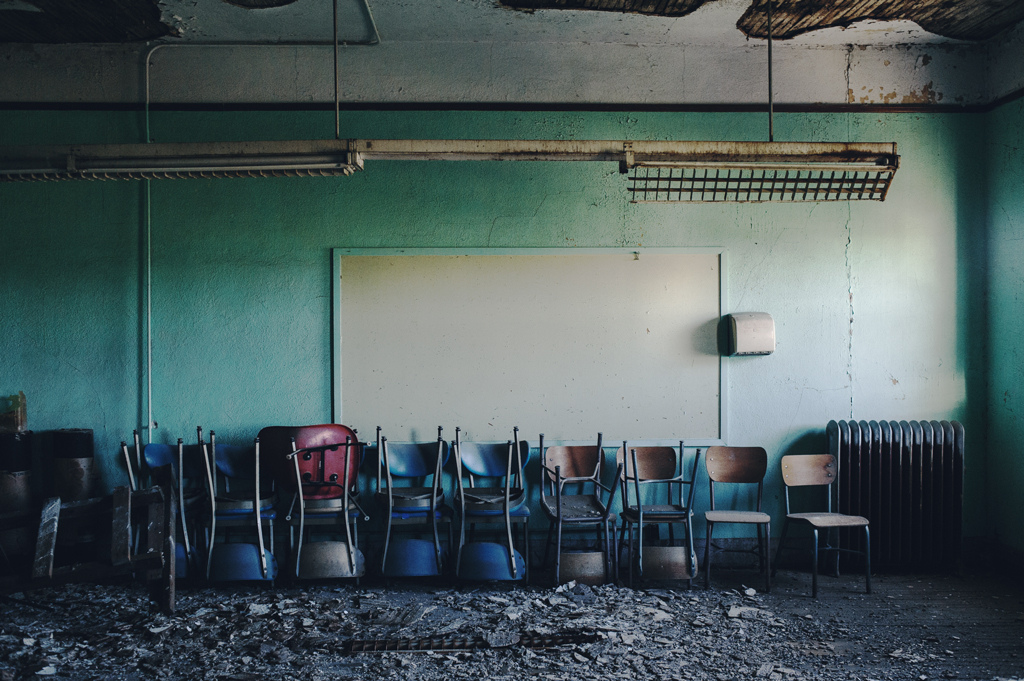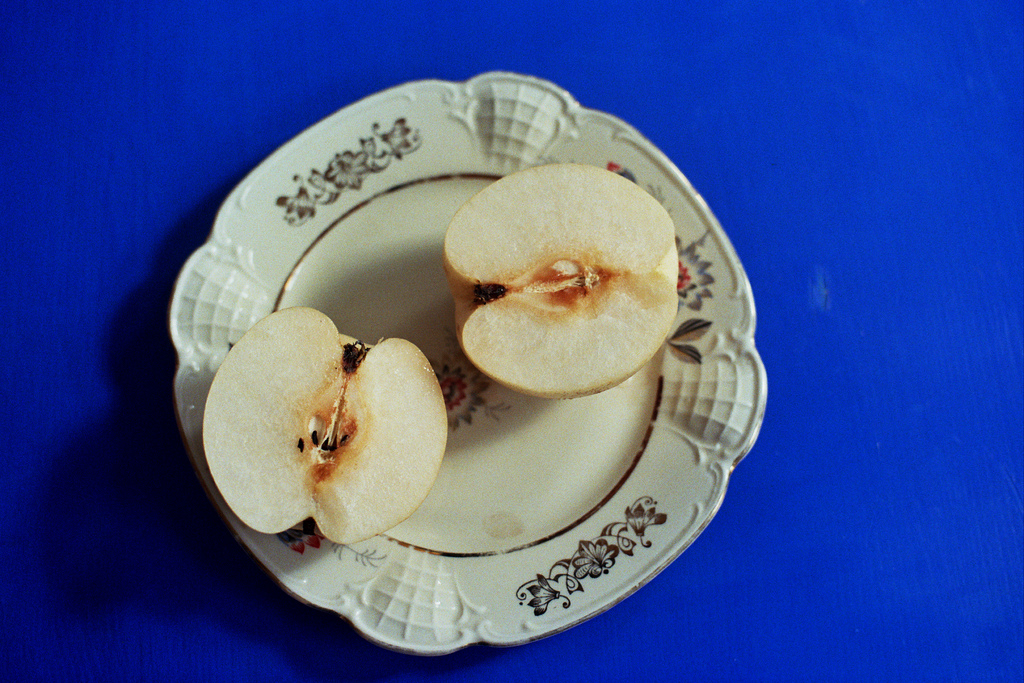
School Days
They call in my mother because I don’t know how to read. She sits stiffly on a chair, ready to spring. She smells like cigarettes and perfume to cover up the cigarettes. Smoking kills.
“We’re concerned about Melanie’s reading,” says the Principal. She’s also sitting stiffly on her chair, but like she’s on a loose canon cable car, hurtling downhill. “She’s pretty far behind her class. We’ve done tests for learning disabilities and vision problems, but we haven’t had any results.”
The Principal kind of reminds me of Frankie going after a spider. Frankie was our cat until we weren’t allowed to have cats anymore because of FIV and we all would die. Sometimes, I wake up at night and think she’s on my bed, soft fur in my face, scratching at my blanket, and then I remember.
“Melanie learns at her own speed,” says my mother. “She always has. I’m not concerned about her.”
The Principal leans forward and her eyes narrow. Behind her on the wall, there’s a painting of boats on a river in the broad sunlight, wind blowing through their sails. It’s her own personal happy place. I know this because when everything ripples like sand in my eyes, my dad tells me to find my happy space and put myself there. Lying in the garden, so deep in grass no one can see except the eye of the sun in the blue blue sky and Frankie on my legs. Someone’s looking for me, in that place, but the grass just keeps growing and growing up around me.
“Frankly, we’re concerned about her.”
My mother says we’re all damned. She sits on the steps in the morning, when the light falls that way, and smokes and watches the hills. I didn’t used to mind that, but in health class this year, they showed us pictures of what smoking does to your lungs and your kidneys and your liver and your blood. My mother says everyone dies anyway.
My dad says the government is skidding on its brakes. He says the whole world is about to tip and stop, extreme freefall and then stillness. He says what they teach us in school is probably irrelevant to our future and we should learn survival skills.
If you have Rollo Insurance, they take care of everything for you. It doesn’t matter if you run like a girl. The little guy will show up and tap you on the shoulder like a ghost and smile so wide you can see the pink of his gums. Sometimes it keeps me up at night worrying that we don’t have Rollo Insurance, that something might happen in the night, a rogue asteroid or an earthquake or Frankie could come back and give us Feline Immunodeficiency Virus, and then what? I asked my mother if we should get it but she said we already had insurance and you shouldn’t believe what you see on TV.
We listened to Winnie-the-Pooh in class last year and I asked Mrs Darling why Winnie-the-Pooh didn’t have insurance for accidents and disasters, to dig him out of the hole when he ate too much honey and got stuck, but Mrs Darling said AA Milne was probably a Communist.
The Principal wants me to have a counsellor. She writes a note in special handwriting, clear and blocky so that anyone could read it, and slides it across the desk for my mother to sign. For a moment, I think my mother is going to tell her about pollution and debt and the aliens, but she just screws up her mouth really tight and then signs the form.
I can read sometimes, though, or I think I can. When I look up at the street signs, the letters form into words. I can read the name of our street, Christopher Columbus Court, and the name of my dad’s cookbook, Trusty Chefs, and the words on the Rollo Insurance ad on tv: Trust Rollo. But that might be because I already know what all of those things say.
At school, when I try to read, the sand comes up, rippling in front of my eyes. The letters lie in flat, shimmering lines and never resolve into words. Our teacher hands out cards with long blocks of text printed in firm, shiny black, and everyone else ticks off the answers. But I just sit there while the big muffin clock on the wall ticks the ten minutes by and draw in all the white parts of the letters that aren’t filled in.
My counsellor tells me to call him Rob. We sit on the floor of his shady office while the sunbeams march by across the elephant curtains, and he has me match cards. None of them really match, he explains, so it isn’t a game. He just wants to know what cards I think are similar. Eventually, at the end, I will match up all the cards, and then Rob will be able to look inside me, like an x-ray machine, and find out what’s wrong with me, but that will take maybe six weeks, maybe more.
Rob doesn’t bring up the reading and so I don’t know if I can. Maybe he doesn’t know, and maybe if he does know he will tell me to leave his elephant office because everybody knows how to read, even the lady who lives by the bus stop and the guy who sells Street Spirit. Mrs Darling says knowing how to read is a basic tenant of freedom.
The Prophets also know how to read. They give me a pamphlet through the hole in the screen door, balling it up and stuffing it through. When I tell them I don’t read very well, the guy squats down to my level so I can see myself reflected in his shiny coke-bottle sunglasses.
“That’s okay, honey,” he says. “The word of God is heard in your soul, not in your mind.”
He sticks his hand through the hole in the screen door and puts his fingertips on my forehead, so I can feel the shadow of them on my eyelids. “Please God,” he says, in a voice that rumbles through his fingerbones, “spare this child in the days to come. She knows not what she does.”
His wrist catches on the jagged frayed edge of the hole. He pulls his hand away and leaves a dark stain on the grey wire mesh. My reflection recedes in his sunglasses.
Rob says I can lie on the couch if I want but he also has a yoga mat. He spreads it out, and I bury my face in the scent of incense and rubber.
“Am I going to die?” I ask him and my voice sounds babyish even to my own ears.
Rob hesitates, his hands poised over the cards in my file. “Why?” he says. “Are you afraid of dying?”
I have to tell someone so I tell him about the sand in front of my eyes and Rollo Insurance and the Prophet with the bleeding wrist and what smoking does to your insides. He listens patiently until I finish, pushing his glasses up his nose every so often. When I run out of words, he’s quiet for a while, not rushing into things like Mrs Darling used to say: let’s not rush into things.
Rob says I’m thinking too hard, in the soothing voice that grown-ups use for things they can’t explain. He pours oil and water into a glass and holds it up to the light, so I can see the greenish line. “Some things just don’t mix, Melanie,” he tells me. “You’re thinking about this too hard. Reading is just one letter after another, making sounds, making words, it’s not the secret to the world. I’ll talk to your mother when she comes to pick you up.”
I think reading is like a guessing game. If you can figure out the squiggles, suddenly you’ll understand what something really is. There are four vowels and one semi-vowel in the alphabet: a e i o u and sometimes y. Cat has one vowel sound, three letters; it doesn’t look like a cat no matter how you squint at it. When we read about Brer Rabbit in class, the difficult words are underlined in pink like cold sores standing out on the page and Mrs. Darling writes them on the projector: fair, she says, as in unfair. Can you think of an example for unfair, class?
I look down at the oily film on the water and imagine it floating endlessly in the clasp of my hands, rocking on its tiny, peaceful sea.







